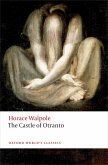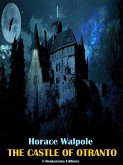In his pioneering Gothic novel, "The Castle of Otranto," Horace Walpole intricately weaves a tale imbued with elements of the supernatural and the macabre. Set against a backdrop of medieval architecture and mysterious castles, the narrative follows the tragic events surrounding the titular castle, where family secrets and ominous prophecies intertwine. Walpole's stylistic choices reflect the early 18th-century fascination with romanticism, blending poetic prose with a somber atmosphere. The novel serves as a precursor to the Gothic genre, flirting with themes of terror, romantic despair, and the uncanny, while employing a narrative technique that invokes suspense through both action and the characters' psychological turmoil. Horace Walpole, an English writer, art historian, and politician, drew heavily on his own experiences and historical interests to craft "The Castle of Otranto." His upbringing in a politically active family and his extensive engagement with art and literature cultivated an environment ripe for creative expression. As a patron of the arts and an aficionado of antiquities, Walpole was profoundly influenced by the ideas of his time, leading him to explore the intersection of history, fiction, and human emotion in his writing. This essential read is highly recommended for those interested in the foundations of the Gothic tradition and the exploration of human psychology within the confines of literature. Walpole's engaging narrative style, combined with his innovative approach to storytelling, makes "The Castle of Otranto" a captivating experience that continues to influence writers and enthrall readers.
Dieser Download kann aus rechtlichen Gründen nur mit Rechnungsadresse in A, B, BG, CY, CZ, D, DK, EW, E, FIN, F, GR, H, IRL, I, LT, L, LR, M, NL, PL, P, R, S, SLO, SK ausgeliefert werden.
Hinweis: Dieser Artikel kann nur an eine deutsche Lieferadresse ausgeliefert werden.









